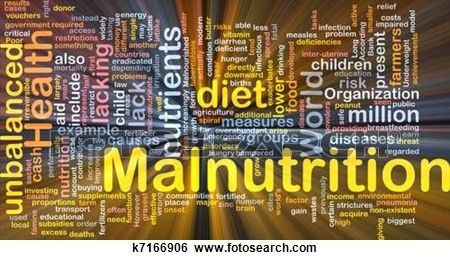World Action Against Malnutrition

On Nov 19-21, 2014, world leaders representing UN member countries will convene at the Second International Conference on Nutrition (ICN2). The assembly, organized by the Food and Agriculture Organization of the United Nations (FAO) and the World Health Organization (WHO), will be held at the FAO Headquarters in Rome, Italy. It will be a significant occasion to discuss pertinent issues concerning all forms of malnutrition, the roots causes and to ensure that decisive actions are done to tackle these challenges.
Prevalent and Emerging Forms of Malnutrition
According to the FAO, although the incidence of undernourishment has declined gradually since 1992, 805 million people worldwide still suffer from starvation, most of which are women and children. An estimate of 99-161 million children under 5 have low weight for their age and stunted growth. These conditions make the younger generation more susceptible to communicable diseases and could lead to other health complications. Moreover, two billion people experience micronutrient deficiency.
Concurrently, problems on obesity and diet-related illnesses in industrialized and in developing countries as well have intensified. Almost 10% of global diseases are caused by unhealthy diet and lack of regular exercise. Authors of the Global Nutrition Report call these coexisting forms of malnutrition "the New Normal". The report is a comprehensive collation of nutrition data from different states. It also aims to assess the efficiency of health programs carried out by various concerned organizations based on their commitment to improve world nutrition.
Urgent Commitments
At the upcoming conference, two outcome documents: the Rome Declaration on Nutrition and a Framework for Action, set the guiding principles for discussion. The declaration aims to uphold commitments made by respective organizations during the first ICN in 1992 and World Food Summits in 1996 and 2009. The second document offers a set of policy alternatives to aid governments and international agencies in creating and strengthening programs to address various threats brought about by malnutrition.
Great Challenges
The Lancet made mention of civil society's dissatisfaction with the efforts and actual results of the previous campaigns and recommendations of the ICN2. They pointed out weaknesses in considering plans for food systems, adequate distribution and sustainability.
Dealing with multiple challenges associated with global nutrition is a complex accountability. It may entail transforming existing food systems or eradicating economic structures affecting food quality, consumption and orientation. Nevertheless, a thorough, unrelenting and genuine pursuit of the main goal will assure future generations their right to proper nutrition.




















